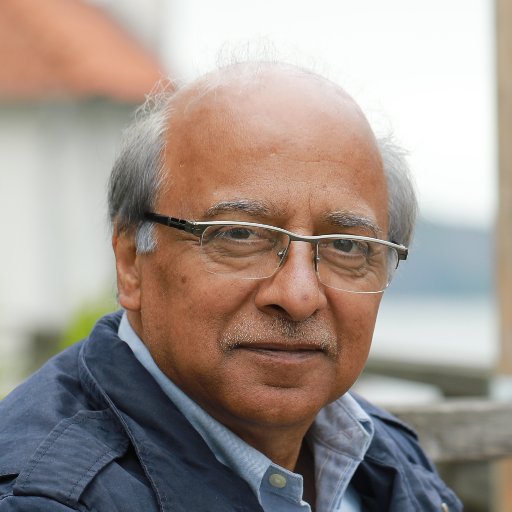Imtiaz Gul

Pakistan on December 17 went through yet another commotion- this time because of the capital punishment a special court awarded to former strongman Pervez Musharraf for imposing emergency in November 2007.

The ruling opened floodgates to pro and contra views in an already charged and polarised political milieu. Many called it a milestone that forecloses future military interventions. Others, including Irfan Qadir, a former attorney general, called it a case based on mala fide intent.
In a split 2-1 ruling a three-member bench of a special court in Pakistan — headed by Peshawar High Court Chief Justice Waqar Ahmad Seth and comprising Justice Nazar Akbar of the Sindh High Court (SHC) and Justice Shahid Karim of the LHC — found Gen Pervez Musharraf guilty of high treason under Article 6 of the Constitution of Pakistan.
Article 6 of the Constitution says: “Any person who abrogates or subverts or suspends or hold in abeyance, or attempts or conspires to abrogate or subvert or suspend or hold in abeyance the Constitution by use of force or show force or by any other unconstitutional means shall be guilty of high treason.”
Musharraf, currently confined to bed in his Dubai residence, can now go through a multi-layered appeals’ process through higher courts before he can petition the president for clemency as a last resort.
Even otherwise, having Musharraf expelled for facing execution from Dubai, would be an almost impossibility in view of the respect he and other Pakistani leaders have traditionally enjoyed in the Gulf state.
Never before did any Pakistani court invoke the said Article 6 against any military coup makers. But the maiden judgment evoked mixed reactions.
Most political parties and the civil society hailed the decision as landmark in the country’s political history, dotted with direct military interventions and nearly three decades of direct military rule.
Ahsan Iqbal, a central Pakistan Muslim League leader, said the court had now closed doors on military take-overs for good.

Attorney General Anwar Mansoor, on the other hand, also took exception to the special court ruling, which critics decried as personality-focused.
Musharraf supporters and the army through its public relations arm – ISPR – on the other hand reacted with anger over what they called hasty and unfair judgment.
Maj Gen Asif Ghafoor, the ISPR chief said the “decision given by special court has been received with lot of pain and anguish by rank and file of Pakistan Armed Forces”.

“An ex-Army Chief, Chairman Joint Chief of Staff Committee and President of Pakistan, who has served the country for over 40 years, fought wars for the defense of the country can surely never be a traitor,” said the ISPR statement.
“The due legal process seems to have been ignored including constitution of special court, denial of fundamental right of self defence, undertaking individual specific proceedings and concluding the case in haste,” Ghafoor said in a statement.
Will the army and its allies now demand all those judges and politicians who condoned the military rule in 2002 through Musharraf’s Legal Framework Order (LFO) and legitimised all his actions through the 17th Constitutional Amendment that provided indemnity to him and colleagues.
The 17th amendment made many changes to the constitution, including those to the office of the President.
Back in March 2008, the former president went on to administer oath to a democratically elected government of Pakistan Peoples’ Party (PPP) including ministers from Nawaz Sharif’s Pakistan Muslim League before stepping down in August the same year.
Major contention by detractors
All those critical of the ruling say neither was Musharraf given fair chance to be heard nor were any one of those around Musharraf when he imposed emergency – Prime Minister Shaukat Aziz, his entire cabinet, and nine corps commanders – were heard during the trial that began in 2014.
Former attorney general Irfan Qadir spoke of aberrations that surrounded the entire case.

“Musharraf declared state of emergency as President under the constitutional Article 232, and hence it amounts to no treason,” Qadir told national media, recalling that he as chief law officer in 2012 had opposed initiation of this case.
Even otherwise, he pointed out, the offence carried no punishment in 1999, and was inserted into the constitution in 2010.
The latest ruling is likely to accentuate tensions between the judiciary and the military, which is already incensed over the Supreme Court’s dramatic objections to the 3-year extension that Prime Minister Imran Khan gave to army chief General Qamar Javed Bajwa late November.
The apex court gave the Khan government six months to lay down procedures for army chief’s appointment and extensions, leading to embarrassment both to Khan and Bajwa.
But the ruling on Tuesday underscored the fast sharpening divisions between the judiciary – which of late let former convicted Prime Minister Nawaz Sharif leave for London on medical grounds and also released former president Asif Zardari on bail.
Several similar decisions have raised many eyebrows, leading to the commonly held perception that in Pakistan “the law is for the rich and the mighty.”
As 2019 nears its end, suspense and political tensions continue hang over Pakistan, with no end in political certainty in sight.



